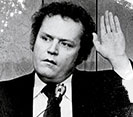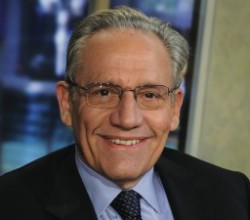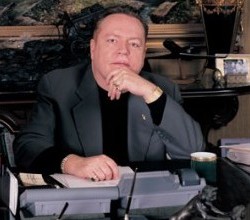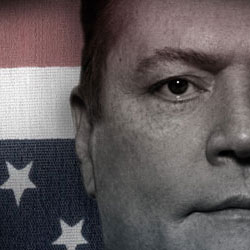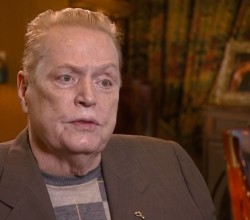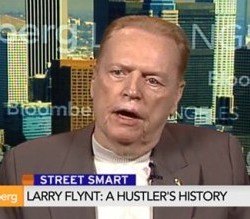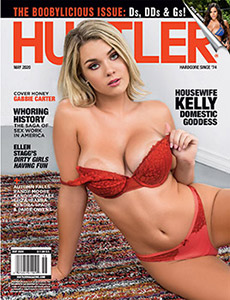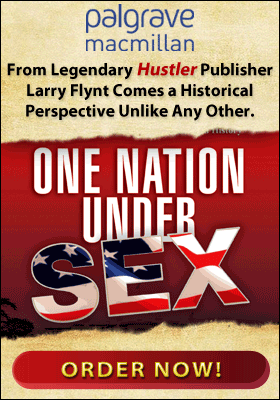Wily Banker
TAXPAYERS END UP FOOTING THE BILL AFTER CITIGROUP’S HEAD HONCHO SELLS A PREZ ON DEREGULATING THE FINANCIAL INDUSTRY
by Robert Scheer
Some guys have all the luck, particularly when they supply the dice. Take Sanford “Sandy” Weill, the banker who did more than any of his fellow scoundrels to precipitate this country’s financial crisis, but who managed to bail out, richer than ever, before the crash.
Earlier this year, Weill made another killing by selling his Manhattan penthouse, which he reportedly purchased for $43.7 million in 2007. The listed selling price for the digs was a cool $88 million, far exceeding any residential transaction in America’s priciest real estate market. But don’t worry about Sandy not having a place to stay; after all, he still has that $35-million estate in the wine region of California and other illgotten gains.
This is the banker who hustled and bought a Republican- led Congress and Democratic President Bill Clinton back in the 1990s and in return was gifted with the reversal of Depression- era rules preventing the emergence of too-bigto- fail banks. The biggest one of all was Citigroup, which Weill created and would ultimately become the world’s largest financial conglomerate.
Weill formed what the New York Times termed a “monster bank” based on a Federal Reserve temporary exemption from existing banking law. But to remain a permanent entity, his then-fledgling bank needed the law itself changed. The obstacle to Weill’s greedy ambitions back then was the Glass-Steagall Act, which long had been a barrier between investment and commercial banks. The 1999 reversal of Glass- Steagall that Weill engineered permitted the merger of Travelers Group—a private investment firm that Weill headed—with Citibank, a commercial bank holding the federally insured savings of ordinary folk.
The Republicans had been on a tear to obliterate the sensible rules governing the financial industry ever since Democratic President Franklin Roosevelt put them into place in response to the Great Depression. FDR did so to prevent another economic calamity. For five decades, Democrats resisted the Wall Street lobbyists and their Republican lapdogs. That is, until Sandy Weill got his buddy Clinton to sign off on the Republican-sponsored legislation that upended the sensible restraints on finance capital which had worked splendidly— for consumers, if not bankers—for half a century.
The night before the announcement of the merger, as Wall Street Journal reporter Monica Langley writes in her book Tearing Down the Walls: How Sandy Weill Fought His Way to the Top of the Financial World…and Then Nearly Lost It All, a buoyant Weill suggested to John Reed, his partner in the merger, “We should call Clinton.” Having no trouble getting through to the President on a Sunday night, Weill informed him of the merger, which violated existing law. After hanging up, Weill boasted to Reed, “We just made the President of the United States an insider.”
That Hillary Clinton was gearing up for a Senate race in New York, the capital of high finance, helped make Weill’s case with the President. Also pushing the Wall Street lobbyists’ cause was Robert Rubin, Clinton’s Treasury Secretary, who had been a honcho at Goldman Sachs prior to taking the Cabinet post. The ink was barely dry on the legislation legitimizing the creation of Citigroup when Rubin went to work at Weill’s bank for $15 million a year. That lucrative career move personifies what I call the revolving platinum door between Washington, D.C., and Wall Street, and Weill was a master at spinning it.
At the signing ceremony, where Clinton presented Weill with one of the pens that fine-tuned Glass-Steagall out of existence, the President proclaimed, “Today what we are doing is modernizing the financial services industry, tearing down those antiquated laws and granting banks significant new authority.”
That “modernization” led to a housing bubble that, when punctured by reality, left 50 million Americans with their homes foreclosed or struggling to keep up with underwater mortgages. As of this writing, 46 million Americans have been reduced to poverty, and tens of millions more are part of an unemployed and underemployed labor force that may never recover.
Neither Republican George W. Bush nor Democrat Barack Obama acted to aid those beleaguered victims of Weill’s folly. But thanks to the bailout policy, the banker himself made out like a bandit. Citigroup would have gone under except for the infusion of $45 billion in direct federal aid and the government’s underwriting of $300 billion of the bank’s toxic paper. We ordinary taxpayers are left holding that debt while Sandy Weill gets to toast with the finest bubbly at his winecountry estate.
———————————
Before serving almost 30 years as a Los Angeles Times columnist and editor, Robert Scheer spent the late 1960s as Vietnam correspondent, managing editor and editor in chief of Ramparts magazine. Now editor of TruthDig.com, Scheer has written such hard-hitting books as The Pornography of Power: How Defense Hawks Hijacked 9/11 and Weakened America and his latest, The Great American Stick-Up: Greedy Bankers and the Politicians Who Love Them.

